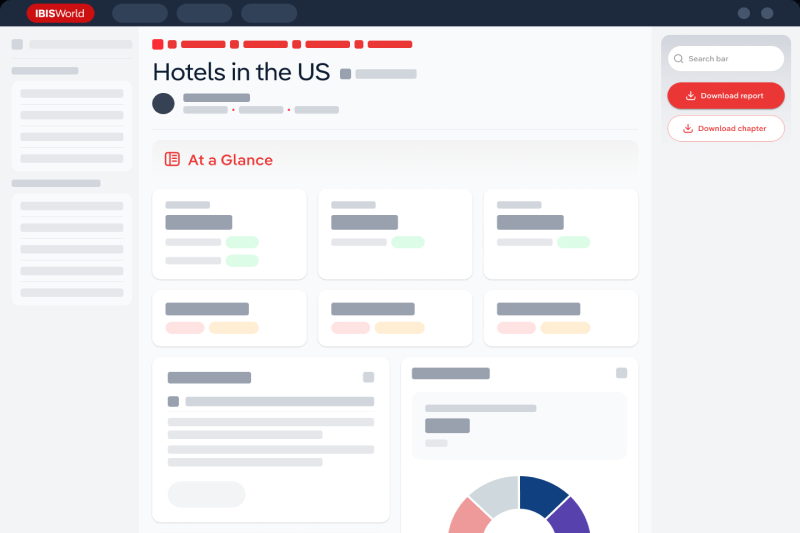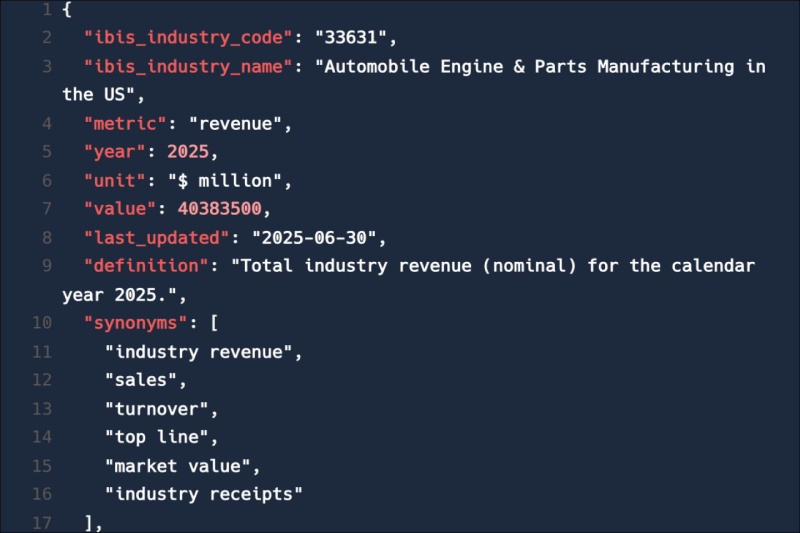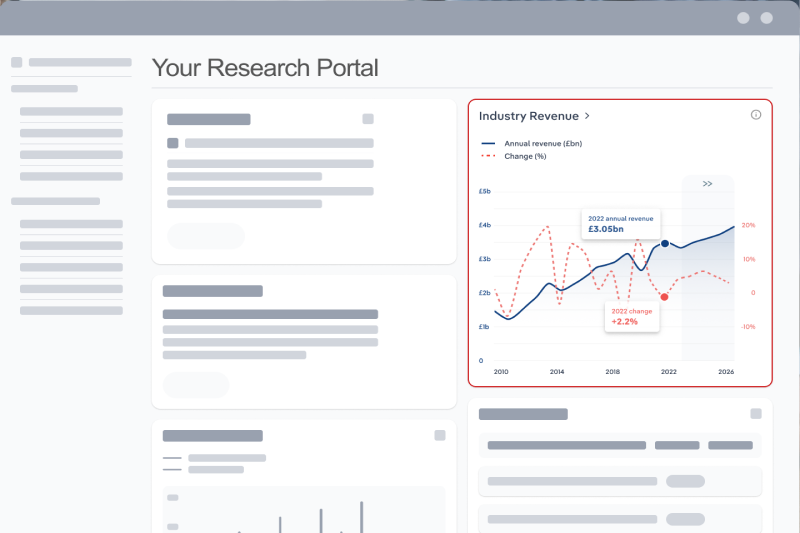IBISWorld Platform
Answer any industry question in minutes with our entire database at your fingertips.

The retirement communities industry continues to evolve as demographic trends and resident preferences shift. Recent performance highlights a steady climb in occupancy rates, as demand from aging adults has outpaced the development of new facilities. Longer life expectancies, higher chronic health needs among seniors and accumulated wealth are driving rising interest in community living. Rising occupancy rates and increased pricing power have led retirement communities to enjoy healthier profit. However, the sector also faces complexity because of recent policy changes under the One Big Beautiful Bill Act. These changes have reduced eligibility for some middle- and lower-income seniors to receive subsidized care, shifting more financial responsibility to private payers. As a result, some communities experience delayed move-ins and feel pressure on revenue streams, especially those serving less affluent regions. Despite these headwinds, many retirement communities have responded by tailoring amenities to evolving medical and lifestyle needs and expanding their offerings to attract a broader, more diverse clientele. Revenue is expected to climb at a CAGR of 3.0% to $100.5 billion through the end of 2026, with a healthy boost of 4.0% in 2026 alone.

Answer any industry question in minutes with our entire database at your fingertips.

Feed trusted, human-driven industry intelligence straight into your platform.

Streamline your workflow with IBISWorld’s intelligence built into your toolkit.
IBISWorld's research coverage on the Retirement Communities industry in the United States includes market sizing, forecasting, data and analysis from 2016-2031. The most recent publication was released January 2026.
The Retirement Communities industry in the United States operates under the NAICS industry code 62331. This industry provides residential and personal care services for older adults and other individuals who cannot fully care for themselves or want to live in a community facility. The care typically includes room, board, supervision, and assistance in daily living, such as housekeeping services. Some establishments provide skilled nursing care for residents in separate on-site facilities. Related terms covered in the Retirement Communities industry in the United States include activities of daily living (adl), continuing care retirement community (ccrc), hospice care, nursing home and care for alzheimer's disease and dementia.
Products and services covered in Retirement Communities industry in the United States include Continuing care retirement communities, Assisted living facilities and homes for the elderly and Other.
Companies covered in the Retirement Communities industry in the United States include Brookdale Senior Living Inc.
The Performance chapter covers detailed analysis, datasets, detailed current performance, sources of volatility and an outlook with forecasts for the Retirement Communities industry in the United States.
Questions answered in this chapter include what's driving current industry performance, what influences industry volatility, how do successful businesses overcome volatility, what's driving the industry outlook. This analysis is supported with data and statistics on industry revenues, costs, profits, businesses and employees.
The Products and Markets chapter covers detailed products and service segmentation and analysis of major markets for the for the Retirement Communities industry in the United States.
Questions answered in this chapter include how are the industry's products and services performing, what are innovations in industry products and services, what products or services do successful businesses offer and what's influencing demand from the industry's markets. This includes data and statistics on industry revenues by product and service segmentation and major markets.
The Geographic Breakdown chapter covers detailed analysis and datasets on regional performance of the Retirement Communities industry in the United States.
Questions answered in this chapter include where are industry businesses located and how do businesses use location to their advantage. This includes data and statistics on industry revenues by location.
The Competitive Forces chapter covers the concentration, barriers to entry and supplier and buyer profiles in the Retirement Communities industry in the United States. This includes data and statistics on industry market share concentration, barriers to entry, substitute products and buyer & supplier power.
Questions answered in this chapter include what impacts the industry's market share concentration, how do successful businesses handle concentration, what challenges do potential industry entrants face, how can potential entrants overcome barriers to entry, what are substitutes for industry services, how do successful businesses compete with substitutes and what power do buyers and suppliers have over the industry and how do successful businesses manage buyer & supplier power.
The Companies chapter covers Key Takeaways, Market Share and Companies in the Retirement Communities industry in the United States. This includes data and analysis on companies operating in the industry that hold a market share greater than 5%.
Questions answered in this chapter include what companies have a meaningful market share and how each company is performing.
The External Environment chapter covers Key Takeaways, External Drivers, Regulation & Policy and Assistance in the Retirement Communities industry in the United States. This includes data and statistics on factors impacting industry revenue such as economic indicators, regulation, policy and assistance programs.
Questions answered in this chapter include what demographic and macroeconomic factors impact the industry, what regulations impact the industry, what assistance is available to this industry.
The Financial Benchmarks chapter covers Key Takeaways, Cost Structure, Financial Ratios, Valuation Multiples and Key Ratios in the Retirement Communities industry in the United States. This includes financial data and statistics on industry performance including key cost inputs, profitability, key financial ratios and enterprise value multiples.
Questions answered in this chapter include what trends impact industry costs and how financial ratios have changed overtime.
The Industry Data chapter includes 10 years of historical data with 5 years of forecast data covering statistics like revenue, industry value add, establishments, enterprises, employment and wages in the Retirement Communities industry in the United States.
More than 6,000 businesses use IBISWorld to shape local and global economies
We were able to supplement our reports with IBISWorld’s information from both a qualitative and quantitative standpoint. All of our reporting now features some level of IBISWorld integration.

IBISWorld delivers the crisp business knowledge we need to drive our business. Whether it be serving up our major clients, winning new business or educating on industry issues, IBISWorld brings real value.

IBISWorld has revolutionised business information — which has proved commercially invaluable to exporters, investors and public policy professionals in Australia and overseas.

When you’re able to speak to clients and be knowledgeable about what they do and the state that they operate in, they’re going to trust you a lot more.

The market size of the Retirement Communities industry in the United States is $100.5bn in 2026.
There are 19,300 businesses in the Retirement Communities industry in the United States, which has grown at a CAGR of 0.9 % between 2021 and 2026.
The Retirement Communities industry in the United States is unlikely to be materially impacted by import tariffs with imports accounting for a low share of industry revenue.
The Retirement Communities industry in the United States is unlikely to be materially impacted by export tariffs with exports accounting for a low share of industry revenue.
The market size of the Retirement Communities industry in the United States has been growing at a CAGR of 3.0 % between 2021 and 2026.
Over the next five years, the Retirement Communities industry in the United States is expected to grow.
The biggest company operating in the Retirement Communities industry in the United States is Brookdale Senior Living Inc.
Continuing care retirement communities and Assisted living facilities and homes for the elderly are part of the Retirement Communities industry in the United States.
The company holding the most market share in the Retirement Communities industry in the United States is Brookdale Senior Living Inc..
The level of competition is high and steady in the Retirement Communities industry in the United States.




